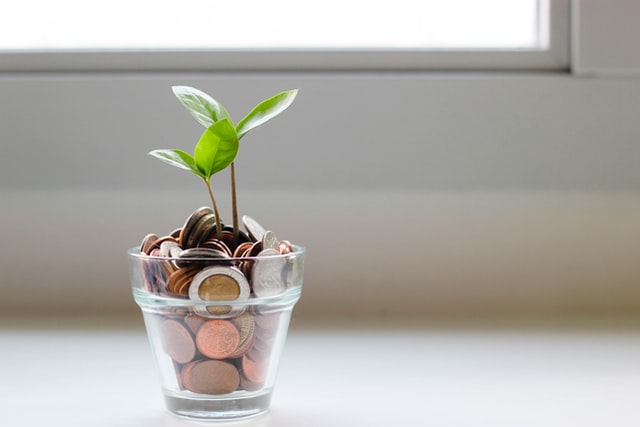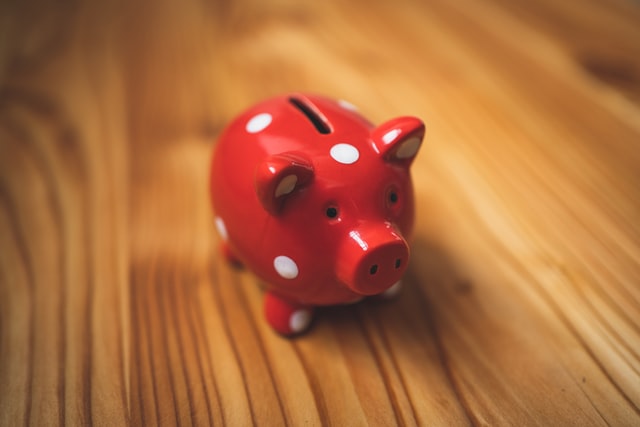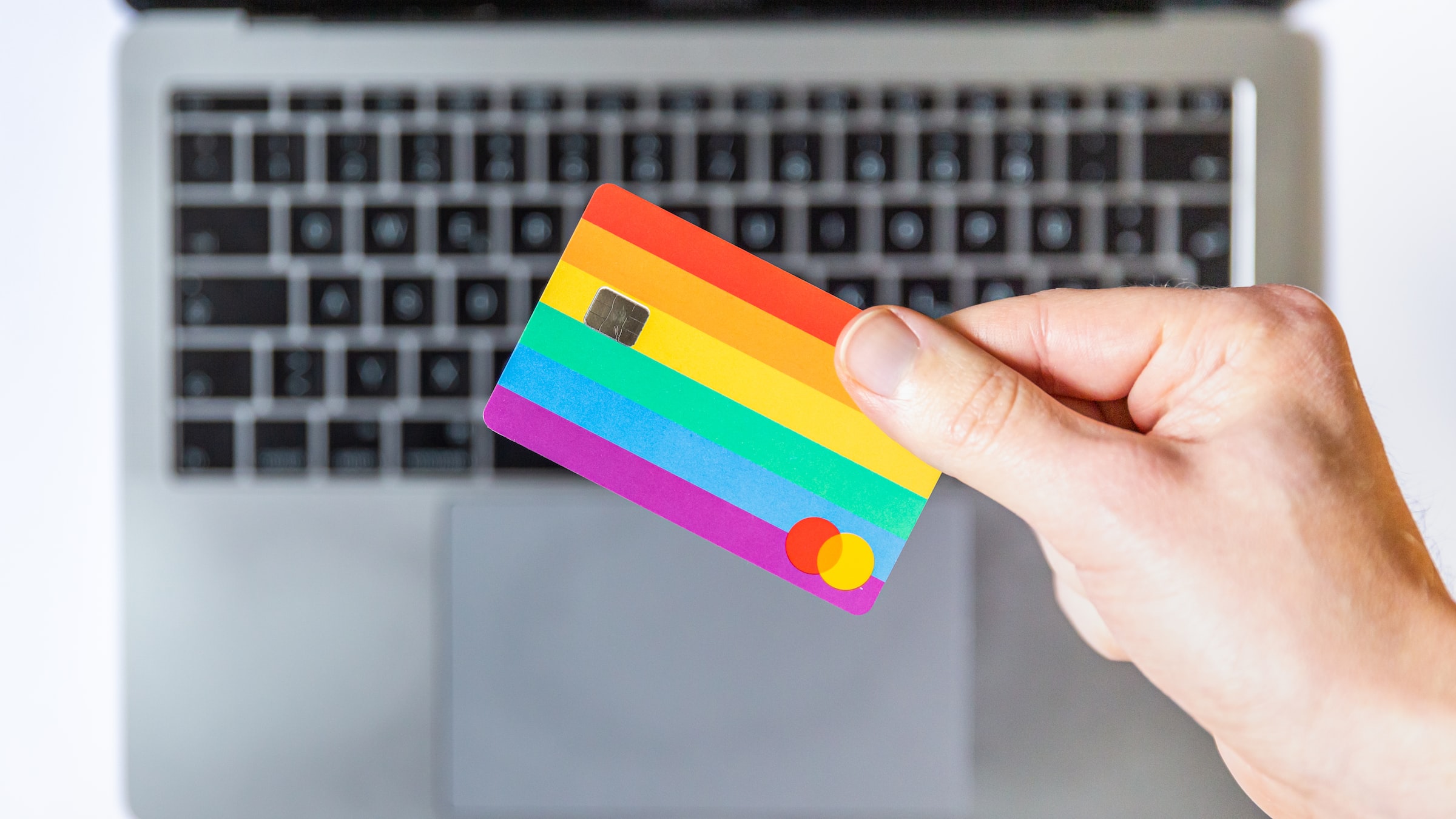The difference between recession-proofing and reacting during a recession is all in the timing. Much of the advice you’ll find on how to adjust your finances is in regards to what you can do during a recession, not in preparation for one. While those strategies are helpful, in this article we’re going to focus more on smaller steps you can take before a recession to provide a buffer for your finances before it happens.
What Is a Recession?
Before we get into planning for how to prepare for a recession before it begins, let’s talk about what a recession is.
A recession is characterized by a considerable drop in overall economic activity. Organizations can face a decrease in profits that can lead to layoffs and, ultimately, a failing business. Let’s take even more of the ambiguity out of this – two consecutive quarters of a drop in the gross domestic product (GDP) and other indicators such as unemployment are traditionally the indicators of the beginning of a recession. However, the National Bureau of Economic Research (NBER) now defines a recession as a sustained drop in economic activity — as measured by real GDP, real income, employment, industrial production, and wholesale-retail sales — that lasts longer than a few months. So, depending on who you listen to, a recession can either begin three or six months after the beginning of a significant downturn in the aforementioned indicators.
Real Tips To Start A Recession Proofing Strategy

Here’s the thing – you can spend some time right now preparing for a recession, or you can lose sleep, later on, wishing you had done something earlier. The good news is that while you’ll certainly have to dedicate time and energy towards putting the tips from our guide below into place, you’ll be reaping the benefits for years to come.
Build a Substantial Emergency Fund
- Having a cash cushion – whatever you can manage – will go a long way to providing you some peace of mind, knowing that you have a buffer in case of a recession. Even a few hundred dollars can ease some worries. If you’re able to put some of that money into an investment account and let it grow – but keep enough cash on hand in case you need it during the recession.
- Limit your expenses by paying down debt. Before you put money into savings, make sure that your debt is paid down to a manageable amount. Consider working with one of the best debt relief companies of 2024 to consolidate your debt and gain control of your payments.
- In tough times, remember it’s important to prioritize essential bills first. Especially if you’re used to having some disposable income, when things get tough it’s important to make sure essential bills are paid first, lest money run out. The last thing you want is to have gone on a long weekend vacation only to get home and realize that you can’t pay your utility bills on time.
- Make an action plan for when emergencies do happen. This is more than just having an account set aside with emergency funds. While that’s an essential part of an emergency plan, it’s also critical to consider what you’ll do if a major expense comes up that savings won’t cover. Will you qualify for a line of credit or a loan? Do you have family that you can lean on temporarily? Going through the exercise of thinking and talking these scenarios through beforehand can make dealing with them at the moment much less stressful.
Brainstorm a Budget Plan – Keeping Inflation in Mind
- One of the best things you can do when certain items are subject to inflation is to buy second-hand. Even if you’re not normally a secondhand shopper, during times of inflation you can save money that you need to put elsewhere by purchasing used items that are still in good condition.
- Plan for larger expenses as far in advance as possible. Bigger ticket items might require a longer-term savings plan during times of inflation than they normally would. It’s tempting to just put off buying those things until the economy starts recovering again, but remember, it will take some time to bounce back. Having a heap of big purchases to make once the recession eases can cause stress to pile up, so do your future self a favor, and plan ahead for necessary but more expensive buys.
Avoid Buying Items Hit by Inflation
Certain items are more subject to inflation than others. Which products see higher price increases depends on the reason for inflation. For example, petroleum-based products are especially expensive now due to the conflict in Ukraine. The market is still recovering from the COVID-related supply chain issues, so some items, like those that require long-distance shipping or have had production issues, are still inflated – like lumber.
Here are some key things that are more expensive at the moment due to inflation:
- Tires
- Petroleum-based plastics
- Household cleaning products
- Foods like eggs, fish, meat, and poultry
- Electricity and other utilities
Avoid Buying Things at Their Peak Price Point
Due to the ability and relative ease of global shipping these days, consumers tend to forget that there are natural seasons for products – especially consumables like fruits and veggies. There are other goods that have seasonal price increases, and thinking ahead to when those increases will occur can help you save a bundle over the course of a year. Here are some of the key things to keep in mind to recession-proof your spending:
- Buy fruits and veggies that are in season.
- Buy TVs and home electronics just before Superbowl season at big discounts.
- Buy seasonal items like summer and winter clothing at the end of that season instead of at the beginning to get things at deep discounts.
- Buy big-ticket home items like furniture around Labor Day, Black Friday, or Memorial Day
- Gym memberships are frequently at a discount during the summer months when lots of people are outside instead of working out at the gym.
- Buy back-to-school supplies at the end of the school year instead of in August.
- Apple often debuts a new iPhone model in September, which is followed by a price drop on the previous year’s phones. If you don’t need the latest iPhone, buy the close-to-latest on sale in October.
Cut Back On Utilities and Services

Splurging on things you don’t need is easy when the economy is strong. Identify the monthly expenses for items you can’t easily do without, and note what things you can cut if you need to save money.
For example, Spotify Premium is a very nice service to have, but if it comes down to paying for that or for electricity or Wi-Fi, it’s probably something you can do without for a little while. Remember that these cutbacks aren’t forever, although once you get used to going without them, you just might find that you don’t miss them as much as you thought you would. Here are some things to consider when deciding what’s most important.
Internet and Cable Services
It’s become a default for many of us to upgrade to the latest and greatest cable and Wi-Fi packages, and thanks to the millions of marketing dollars aimed in our direction, we forget that there are, in fact, lower tiers of internet service that are much less expensive but still very functional.
Wi-Fi is a good example. Chances are, if you have fiber optic or high-speed Wi-Fi in your area, your provider aggressively encourages you to upgrade. And while it’s nice to have blindingly fast internet, you can usually still stream video and have successful video calls with a lower-speed package – and the savings over a few months or even a year can be significant.
Subscriptions
Subscription services have become a way of life for many of us, but if you look closely, you’ll find that what begins as a monthly package and seems like a great deal can quickly morph into a bloated bill full of add-ons and extras that you don’t need. Do I really need Netflix, Amazon, Disney+, Hulu, and YouTube? Can you go without subscription food boxes and fit fab fun type subscriptions. They are luxurious and nice to have and we are not saying to cancel them all but you could cut down.
Take a few minutes to make a list of all of your subscriptions – check your credit card bill or bank statement from last month to refresh your memory. Once you tally up the total, you’ll likely see where you can easily – and often painlessly – cut back.
Natural Gas
Saving money on your utility bill can be as easy as reducing the amount of energy your home uses. Here are some tips to get you started:
- Take a shower instead of a hot bath.
- Take it easy on the hot water in your showers – cooler water is better for your skin and hair, too!
- If you’re away or don’t use your boiler that often, only light the pilot when you need it.
Coffee and Cocktails
Our daily or weekly habits may seem small, but they add up quickly. Coffee, energy drinks, and happy hour events are huge drains on your bank account. Consider the math if you have a coffee in the morning and afternoon, and head to a happy hour twice a week.
- Coffee/ energy drink – $4 x twice per day = $8/ day = $56/week = $224/ month
- Happy hours drinks – $10 x two drinks plus tip = $24/ day x 2 = $48/ week = $192/ month
That’s $416 per month! While that might be a small amount during good times, when money is tight, $400 can go a long way toward paying the rent or mortgage and your essential bills.
Eating Out
Ordering in and eating out are easy habits to get into and can be hard ones to break, but learning to cook at home can be fun, and it’ll help you expand your culinary horizons while saving you a lot of money.
Home Products and Subscriptions
This can be easy and realistic let’s talk about some simple ideas. There are plenty of ways to get creative.
DIY Your Home Cleaning Supplies
Home cleaning products are notoriously expensive, and they’re very susceptible to inflation. Switching to homemade cleaning products is a super easy and seamless way to save a bundle over a few months or a year. Grab a couple of spray bottles at the dollar store. Fill one with a half-white vinegar and half-water solution, and use it as an all-purpose cleaner. Fill the other with the same ingredients, but add the juice of one or two lemons, and use it to clean kitchen counters, fridge shelves, and the dining room table.
Choose Generic Over Brand Names
The manufacturing process is a tricky business when it comes to generic products, including food items. These are functionally the exact same as their brand-name counterparts, only without the flashy marketing. Look for generic or store versions of the items you use each day, and over time, you’ll save a hefty sum of money.
A great example of common generic brand substitutes you see at the grocery store is cereal, soda, and over-the-counter medications. You can find great quality at lower prices. Just make sure to read the product information and ingredient label to ensure you’re getting similar value at a fraction of the cost.
Protect and Appreciate What You Already Have
Approach your life with an attitude of gratitude. This can have a tremendous impact on how you show up to others, both at home and at work. If you take your job for granted, it may mean that you don’t put your best foot forward each day – and that vibe is probably clear to those around you. Since job stability is a huge factor in your financial success during a recession, do your best to appreciate the things your job gives you, even if the day-to-day isn’t your dream come true.
Another way to protect your job stability is to do your best to stay trained and educated on the newest developments in your field. Keeping your skills sharp and current means that your value at work will keep your position relevant and less likely to be cut during layoffs.
Don’t Panic-Be Careful About Selling Investments
Selling or cashing in investments should be your last resort to make ends meet. If you’re diligent about following the tips in this guide, hopefully, you won’t have to take this step. There’s no doubt that it can be hard to control the instinct to panic when it looks like the market is heading into freefall, but keeping calm can mean the difference between keeping your nest egg safe and selling it at a less-than-ideal time.
Re-Evaluate Your Card Interest Rates

If you’ve had credit cards for a while, it’s easy to forget what interest rate you’re paying on each one. Time passes, and the next thing you know, you’re paying an astronomical amount in interest each month.
If you take some time to work out what your interest rates are on each card you have and do your best to use the high-interest rate cards as little as possible and pay them down first, you’ll be saving more money than you might think!
Pay Down High-Interest Credit Card Balances
Checking to see what your interest rate is can be done in a couple of easy ways. Likely, your particular credit card has a webpage that will tell you, in particular, the interest rate. This is easy to find through an online search, or you can call your credit card company and ask. This way, you’ll have all the info and be able to set reminders in your calendar each month to pay the higher interest cards first.
Maintain a High Credit Score
When credit markets tighten, those with good credit will be the only ones who can get a mortgage, credit card, or another type of loan. Paying your bills on time, keeping your oldest credit cards open, and keeping your debt-to-available-credit ratio low will all help you maintain a high credit score.
Review Insurance Policies
Calling your insurance agent and looking over your policies can be very financially rewarding. Ask your agents about:
- Bundling options
- Reducing premiums
- Various discounts for things like a period with no claims on your insurance or for living outside of an urban area
- Shopping around for different options with better rates
Get a Good Mortgage — or Refinance
- Compare at least three mortgage offers before deciding. Rates and fees differ between lenders, and consumers who shop around can save thousands of dollars over the life of a loan.
- Maintain a high credit score: The single most crucial element that influences a mortgage rate, and the terms you can get is your credit score.
- Paying points is an option: Mortgage points are expenses paid to a mortgage lender in order to lower the loan’s interest rate. According to mortgage data provider Black Knight, as rates have risen, more borrowers are paying points.
Using Appliances Warranties
When we are flowing with cash and we have plenty to spend, we often don’t worry if an appliance or a HAVC system breaks down. We usually just decide to replace it. In a time of crisis, remember that most appliances, gadgets, and HAVC systems have warranties. There are some ways to extend the warranties on some of these pricy ticket items. One way is a home warranty. This is something you definitely want to look at and ponder.
The Financial Future of The U.S.
Not much will get politicians to act faster than losing approval points due to inflation. On that note, the Federal Reserve is already working on policies to bring inflation down. Meanwhile, stability in Ukraine and continued vaccinations against covid can help stabilize the inflation rate.
As the economy eventually bounces back to a healthy level, recession-proofing, as laid out above, will help you weather the recession and emerge in good financial shape. Visit a financial advisor if you have more questions or want more ways to prepare for a recession.




